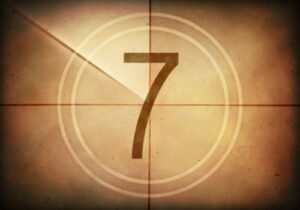You’ve worked hard to get the education and credentials necessary to become a licensed podiatrist and build your career. Unfortunately, you are now facing a complaint against your dietician license for violating a rule or law that applies to your profession. Even if the complaint is groundless, you must proactively protect your license and career. Contact a podiatrist license defense attorney to help you with the complaint and any disciplinary proceedings before the Texas Department of Licensing and Regulation (TDLR).
How TDLR Processes Complaints
TDLR licenses and regulates various occupations, including podiatrists. TDLR also has an Enforcement Division that receives and investigates all complaints against these professionals.
When TDLR receives a complaint against a podiatrist, staff members first determine whether TDLR has jurisdiction over the podiatrist and whether there is reason to believe that a violation of a law or rule has occurred under Tex. Occ. Code §202.501. If so, then TDLR staff opens a case for investigation.
TDLR Investigations
Under Tex. Occ. Code §202.2031, TDLR must notify the license holder who is the subject of the complaint that someone has filed a complaint against them. However, TDLR is not required to notify the license holder of the complaint if doing so would jeopardize its investigation.
During the investigation, the investigator will interview the complainant, the license holder (in most cases), and any witnesses. The investigator also is responsible for gathering any documents that pertain to the case. Following the investigation, the investigator submits an investigative report to a prosecuting attorney at TDLR, who decides the next steps in the case.
Complaint Dismissal
In some cases, the TDLR prosecutor may determine that there is no reason to continue enforcement action based on the investigation results. For instance, there may be insufficient evidence to proceed with formal disciplinary proceedings. In that case, the prosecutor may close the case and notify the complainant and license holder. Alternatively, the prosecutor could send a warning letter to the license holder cautioning them of potential violations and then close the case.
Notices of Alleged Violation
If a TDLR prosecutor finds that a license holder has violated a law or rule that applies to the practice of podiatry, TDLR may initiate disciplinary action against the license holder. Under Tex. Occ. Code §202.051, TDLR may reprimand, place on probation, suspend a license, or revoke a license of any podiatrist who violates one or more of these rules or laws.
The first step in any disciplinary proceeding is for the TDLR to issue a Notice of Alleged Violation (NOAV) to the podiatrist. The NOAV states the alleged violations of law or rules and potential sanctions and/or administrative penalties that the license holder could face. Administrative penalties are financial sanctions, and other sanctions are those listed above.
Agreed Orders
Some NOAVs may contain Agreed Orders or settlement offers from TDLR to resolve the case informally. An Agreed Order contains an admission of a violation of a rule or law and certain steps the license holder must complete due to the violation. For instance, a license holder may need to pay a fine, be monitored by another podiatrist, report to TDLR periodically, or undergo other education or training. Signing an Agreed Order means that TDLR will continue to monitor the license holder for compliance with the Agreed Order until they have completed all its terms and conditions. However, a license holder is not required to sign an Agreed Order.
Orders of Default
License holders who do not sign an Agreed Order or request an administrative hearing within 20 days of receiving the NOAV from TDLR are subject to a Default Order. In other words, TDLR will issue an order finding that the license holder committed the alleged violation and imposing any sanctions or penalties. The license holder cannot ask for another hearing or respond to the Default Order. As a result, a timely response to the NOAV is critical.
Administrative Hearings at the State Office of Administrative Hearings
If a license holder requests a hearing, TDLR sends the case to the State Office of Administrative Hearings (SOAH). SOAH assigns the case to an administrative law judge (ALJ), who schedules the hearing. Following the exchange of information through the discovery process, the ALJ holds a hearing for both parties to present their evidence, including witness testimony and documents.
After the hearing, the ALJ issues a proposal for decision (PFD). The PFD contains the ALJ’s findings of fact and conclusions of law and any recommended sanctions. Ultimately, TDLR determines whether to adopt the PFD, amend it, or reject it. The Commission of Licensing and Regulation of TDLR holds a meeting to consider the PFD. The parties can go to the meeting and make arguments concerning the PFD. After the meeting, TDLR will issue a Final Order regarding the case.
Sanctions for Disciplinary Action Against Licensed Podiatrists
TDLR regulates various occupations using a general enforcement plan. However, TDLR maintains a specialized matrix of violations and sanctions unique to each occupation, including one for podiatrists. TDLR has classified violations of the rules and laws applicable to dieticians into four classes, ranging from Class A to Class D, based on increasing severity, as follows:
- Class A – fine of $500 – $2,000
- Class B – fine of $1,000 – $3,000 and/or up to a one-year probated suspension
- Class C – fine of $2,000 – $5,000 and/or sanctions ranging from a one-year probated suspension to a revocation
- Class D – fine of $5,000 and/or revocation
Get the Advice You Need About Disciplinary Action Against Your Podiatrist License
When facing the potential loss of your career and ability to earn a living, you cannot take unwarranted risks. Handling such a challenging situation on your own can have disastrous results. A podiatrist license defense lawyer at Bertolino LLP, can look at the facts surrounding your situation and determine the best strategy to protect your professional license. Call us today at (512) 515-9518 or get more information about us online.
Call or text (512) 476-5757 or complete a Case Evaluation form






